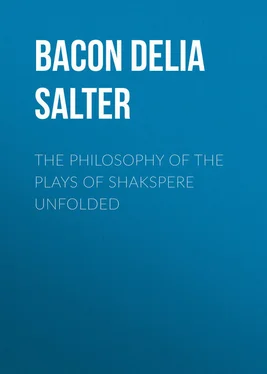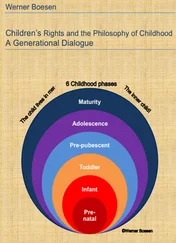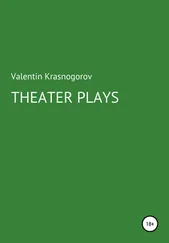Delia Bacon - The Philosophy of the Plays of Shakspere Unfolded
Здесь есть возможность читать онлайн «Delia Bacon - The Philosophy of the Plays of Shakspere Unfolded» — ознакомительный отрывок электронной книги совершенно бесплатно, а после прочтения отрывка купить полную версию. В некоторых случаях можно слушать аудио, скачать через торрент в формате fb2 и присутствует краткое содержание. Жанр: literature_19, foreign_antique, foreign_prose, на английском языке. Описание произведения, (предисловие) а так же отзывы посетителей доступны на портале библиотеки ЛибКат.
- Название:The Philosophy of the Plays of Shakspere Unfolded
- Автор:
- Жанр:
- Год:неизвестен
- ISBN:нет данных
- Рейтинг книги:3 / 5. Голосов: 1
-
Избранное:Добавить в избранное
- Отзывы:
-
Ваша оценка:
- 60
- 1
- 2
- 3
- 4
- 5
The Philosophy of the Plays of Shakspere Unfolded: краткое содержание, описание и аннотация
Предлагаем к чтению аннотацию, описание, краткое содержание или предисловие (зависит от того, что написал сам автор книги «The Philosophy of the Plays of Shakspere Unfolded»). Если вы не нашли необходимую информацию о книге — напишите в комментариях, мы постараемся отыскать её.
The Philosophy of the Plays of Shakspere Unfolded — читать онлайн ознакомительный отрывок
Ниже представлен текст книги, разбитый по страницам. Система сохранения места последней прочитанной страницы, позволяет с удобством читать онлайн бесплатно книгу «The Philosophy of the Plays of Shakspere Unfolded», без необходимости каждый раз заново искать на чём Вы остановились. Поставьте закладку, и сможете в любой момент перейти на страницу, на которой закончили чтение.
Интервал:
Закладка:
This was the combination of conditions of which the Elizabethan Literature was the result. The Elizabethan Men of Letters, the organisers and chiefs of the modern civilization were the result of it.
These were men in whom the genius of the North in its happiest union of developments, under its choicest and most favourable conditions of culture, in its yet fresh, untamed, unbroken, northern vigour, was at last subjected to the stimulus and provocation which the ancient learning brings with it to the northern mind – to the now unimaginable stimulus which, the revival of the ancient art and learning brought with it to the mind of Europe in that age, – already secure, in its own indigenous development, already advancing to its own great maturity under the scholastic culture – the meagre Scholastic, and the rich Romantic culture – of the Mediaeval Era. The Elizabethan Men of Letters are men who found in those new and dazzling stores of art and literature which the movements of their age brought in all their freshly restored perfection to them, only the summons to their own slumbering intellectual activities, – fed with fires that old Eastern and Southern civilizations never knew, nurtured in the depths of a nature whose depths the northern antiquity had made; they were men who found in the learning of the South and the East – in the art and speculation that had satisfied the classic antiquity – only the definition of their own nobler want.
The first result of the revival of the ancient learning in this island was, a report of its 'defects.' The first result of that revival here was a map – a universal map of the learning and the arts which the conditions of man's life require – a new map or globe of learning on which lands and worlds, undreamed of by the ancients, are traced. 'A map or globe' on which 'the principal and supreme sciences,' the sciences that are essential to the human kind, are put down among 'the parts that lie fresh and waste, and not converted by the industry of man.' The first result of the revival of learning here was 'a plot' for the supply of these deficiencies.
The Elizabethan Men of Letters were men, in whom the revival of 'the Wisdom of the Ancients,' which in its last results, in its most select and boasted conservations had combined in vain to save antiquity, found the genius of a happier race, able to point out at a glance the defect in it; men who saw with a glance at those old books what was the matter with them; men prepared already to overlook from the new height of criticism which this sturdy insular development of the practical genius of the North created, the remains of that lost civilization – the splendours rescued from the wreck of empires, – the wisdom which had failed so fatally in practice that it must needs cross from a lost world of learning to the barbarian's new one, to find pupils – that it must needs cross the gulf of a thousand years in learning – such work had it made of it – ere it could revive, – the wisdom rescued from the wreck it had piloted to ruin, not to enslave, and ensnare, and doom new ages, and better races, with its futilities, but to be hung up with its immortal beacon-light, to shew the track of a new learning, to shew to the contrivers of the chart of new ages, the breakers of that old ignorance, that old arrogant wordy barren speculation. For these men were men who would not fish up the chart of a drowned world for the purpose of seeing how nearly they could conduct another under different conditions of time and races to the same conclusion. And they were men of a different turn of mind entirely from those who lay themselves out on enterprises having that tendency. The result of this English survey of learning was the sanctioned and organised determination of the modern speculation to those new fields which it has already occupied, and its organised, but secret determination, to that end of a true learning which the need of man, in its whole comprehension in this theory of it, constitutes.
But the men with whom this proceeding originates, the Elizabethan Men of Letters, were, in their own time, 'the Few.' They were the chosen men, not of an age only, but of a race, 'the noblest that ever lived in the tide of times;' men enriched with the choicest culture of their age, when that culture involved not the acquisition of the learning of the ancients only, but the most intimate acquaintance with all those recent and contemporaneous developments with which its restoration on the Continent had been attended. Was it strange that these men should find themselves without sympathy in an age like that? – an age in which the masses were still unlettered, callous with wrongs, manacled with blind traditions, or swaying hither and thither, with the breath of a common prejudice or passion, or swayed hither and thither by the changeful humours and passions, or the conflicting dogmas and conceits of their rulers. That is the reason why the development of that age comes to us as a Literature . That is why it is on the surface of it Elizabethan . That is the reason why the leadership of the modern ages, when it was already here in the persons of its chief interpreters and prophets, could get as yet no recognition of its right to teach and rule – could get as yet nothing but paper to print itself on, nothing but a pen to hew its way with, nor that, without death and danger dogging it at the heels, and threatening it, at every turn, so that it could only wave, in mute gesticulation, its signals to the future. It had to affect, in that time, bookishness and wiry scholasticism. It had to put on sedulously the harmless old monkish gown, or the jester's cap and bells, or any kind of a tatterdemalion robe that would hide, from head to heel, the waving of its purple. ' Motley's the only wear,' whispers the philosopher, peering through his privileged garb for a moment. King Charles II. had not more to do in reserving himself in an evil time, and getting safely over to the year of his dominion.
Letters were the only ships that could pass those seas. But it makes a new style in literature, when such men as these, excluded from their natural sphere of activity, get driven into books, cornered into paragraphs, and compelled to unpack their hearts in letters. There is a new tone to the words spoken under such compression. It is a tone that the school and the cloister never rang with, – it is one that the fancy dealers in letters are not able to deal in. They are such words as Caesar speaks, when he puts his legions in battle array, – they are such words as were heard at Salamis one morning, when the breeze began to stiffen in the bay; and though they be many, never so many, and though they be musical, as is Apollo's lute, that Lacedemonian ring is in each one of them. There is great business to be done in them, and their haste looks through their eyes. In the sighing of the lover, in the jest of the fool, in the raving of the madman, and not in Horatio's philosophy only, you hear it.
The founders of the new science of nature and practice were men unspeakably too far above and beyond their time, to take its bone and muscle with them. There was no language in which their doctrines could have been openly conveyed to an English public at that time without fatal misconception. The truth, which was to them arrayed with the force of a universal obligation, – the truth, which was to them religion, would have been, of course, in an age in which a single, narrow-minded, prejudiced Englishwoman's opinions were accepted as the ultimate rule of faith and practice, 'flat atheism.' What was with them loyalty to the supremacy of reason and conscience, would have been in their time madness and rebellion, and the majority would have started at it in amazement; and all men would have joined hands, in the name of truth and justice, to suppress it. The only thing that could be done in such circumstances was, to translate their doctrine into the language of their time. They must take the current terms – the vague popular terms – as they found them, and restrict and enlarge them, and inform them with their new meanings, with a hint to 'men of understanding' as to the sense in which they use them. That is the key to the language in which their books for the future were written.
Читать дальшеИнтервал:
Закладка:
Похожие книги на «The Philosophy of the Plays of Shakspere Unfolded»
Представляем Вашему вниманию похожие книги на «The Philosophy of the Plays of Shakspere Unfolded» списком для выбора. Мы отобрали схожую по названию и смыслу литературу в надежде предоставить читателям больше вариантов отыскать новые, интересные, ещё непрочитанные произведения.
Обсуждение, отзывы о книге «The Philosophy of the Plays of Shakspere Unfolded» и просто собственные мнения читателей. Оставьте ваши комментарии, напишите, что Вы думаете о произведении, его смысле или главных героях. Укажите что конкретно понравилось, а что нет, и почему Вы так считаете.












